
by Nicholas Mitsakos | Algorithmic Trading, Book Chapter, Innovation, Technology, Transformative businesses, Writing and Podcasts
Artificial intelligence is often imagined in extremes — utopian dreams of salvation or dystopian fears of extinction. More realistically, AI should be viewed as a normal technology. AI will be transformative, like electricity or the internet. Still, it will unfold over decades, shaped by human institutions, policies, and societal adoption patterns, not by sudden leaps into autonomous superintelligence. AI is not miraculous and unpredictable. It is transformative and will impact many lives for many decades. AI will not create extreme utopian or apocalyptic visions. It will be part of a continuum of human technological advances, powerful and transformative but ultimately shaped by human choices, institutions, and values. Focusing on resilience, gradual adaptation, institutional innovation, and evidence-based governance can help society maximize AI’s benefits while managing its genuine risks. The future of AI will not be determined by the technology alone. We will determine it.
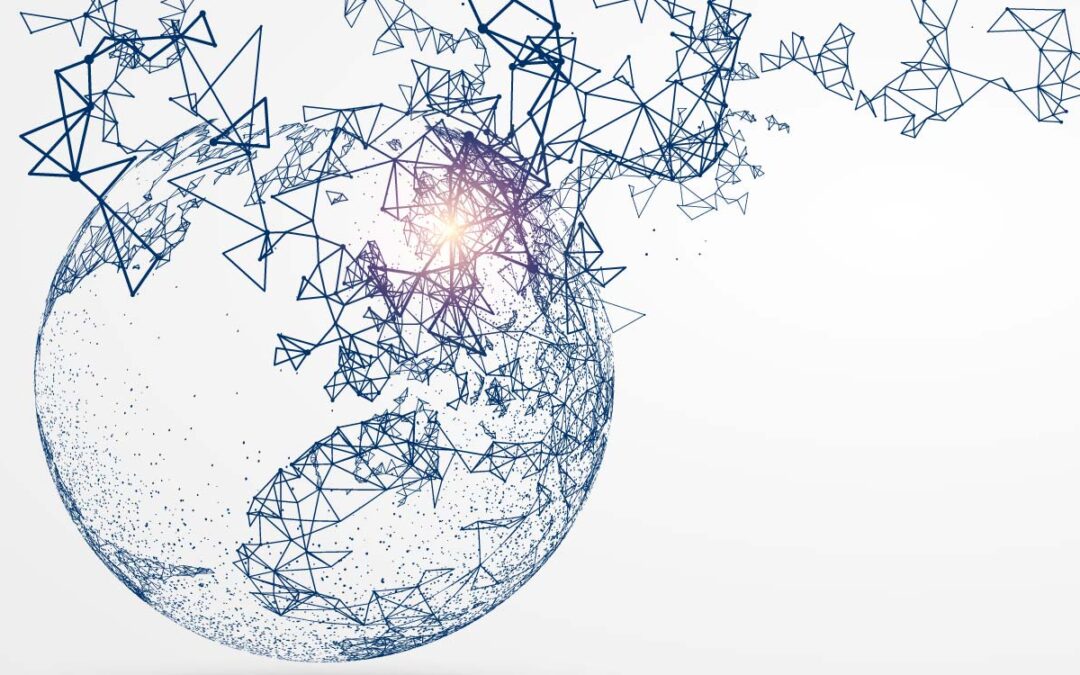
by Nicholas Mitsakos | Artificial Intelligence, Book Chapter, China, Economy, Globalization, Public Policy, Science, Taiwan, Technology, Transformative businesses, Writing and Podcasts
The convergence of volatile geopolitics fragmented and unpredictable markets, disruptive technologies, and unique opportunities. Understanding geopolitical issues, developing innovative and insightful investment strategies, and navigating political and economic volatility are now essential to achieving investment success.

by Nicholas Mitsakos | Artificial Intelligence, Book Chapter, China, Globalization, Innovation, Public Policy, Transformative businesses, Writing and Podcasts
Significant VC activity and AI development opportunities are emerging in China. DeepSeek is the Vanguard of innovation from the artificial intelligence “moonshot” encouraged by the Chinese government. Not only will we see ongoing developments from Alibaba and Tencent, but there will also be a layer of elite AI companies at the forefront of China’s AI sector. US sanctions and restrictions have only increased innovation and groundbreaking AI development activity in China. Those sanctions will amount to nothing and encourage accelerated advancement.

by Nicholas Mitsakos | Artificial Intelligence, China, Technology, Transformative businesses, Writing and Podcasts
The announcement of a $500 billion commitment to building AI infrastructure in the United States, is another major salvo in the AI wars. At this point, it’s hard to distinguish whether this is just hyperbole from hyperventilating technology executives or something with real substance.
But, more importantly, it indicates an agenda to “win” in artificial intelligence. OpenAI, Softbank, and others are pushing the narrative to “beat China” and align themselves with the Trump administration. Fundamental is a belief that such a race exists, the US can gain advantage by dedicating computer resources, and it’s worth winning at all costs – whatever that means.
Unfortunately, computer resources don’t define a sustainable advantage anymore. A decoupling of resources and cooperation between the United States and China have forced the Chinese to develop near-equivalent models while using only a fraction of resources. bigger data centers, substantial computing resources, and overwhelming numbers of GPU production won’t win this arms race.
It’s A Zero-Sum Game That Amounts to Nothing.
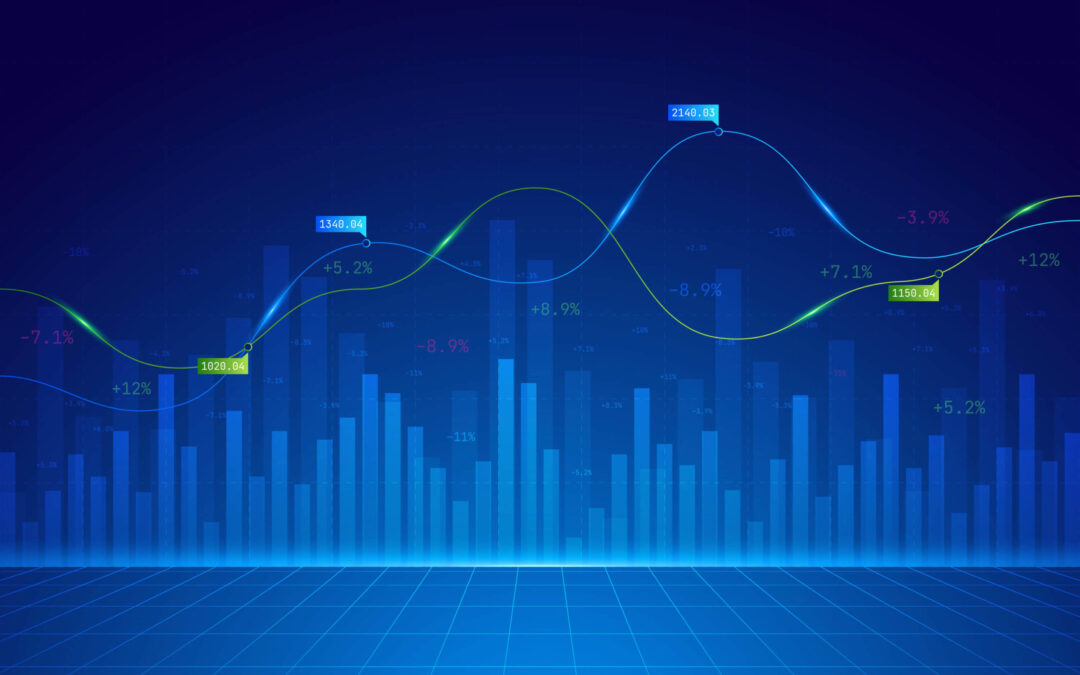
by Nicholas Mitsakos | Innovation, Investment Principles, Investments, irrationality, The Market, Transformative businesses, uncertainty, Writing and Podcasts
Predicting what’s next has been a fool’s game, and it continues to be. The S&P 500 was up 26% in 2023 and 25% in 2024, for the best two-year stretch since 1997-98. That brings us to 2025. What lies ahead? Rationality, Optimism, exuberance, disappointment, correction, and more frequent and intense volatility—with uncertainty about the timing, extent, and outcome. Is enthusiasm for new technology creating a bubble, and will the bubble burst? Optimism has prevailed in the markets since late 2022, generating above-average valuations and astonishing returns for some (primarily AI-related) equities. Stocks in most industrial groups sell at high multiples, but enthusiasm for artificial intelligence and the persistence of the Magnificent 7 drive most market expectations. There is the implicit presumption that the top seven companies will continue to be successful and that the “new thing” (artificial intelligence) will drive valuations even higher. However, stocks may sit still for the next 10 years as earnings rise and multiples return to earth. Another possibility is that the multiple correction is compressed into a year or two, implying a significant decline in stock prices. Be aware of Mr. Market’s irrational behavior. It’s not going to be a smooth pathway forward; there will be great investment opportunities, as there are in any market, but overall, it’s a high starting point. It’s time to be neutral.

by Nicholas Mitsakos | Artificial Intelligence, Digital Assets, Finance, Financial Technology, Innovation, Transformative businesses, Writing and Podcasts
Apple can disrupt global finance. Visa and MasterCard are now vulnerable. Previously, it was believed that the capital required for infrastructure, systems, and processing was an insurmountable obstacle to any new competitor. But things have changed. Innovation and disruption in the credit card business pose a threat to established players like Visa and MasterCard. Apple can leverage its ecosystem, user experience focus, brand trust, strategic partnerships, and innovative use of data to succeed in the credit card business. Over time, as it scales and innovates, it could challenge Visa and MasterCard’s market dominance.
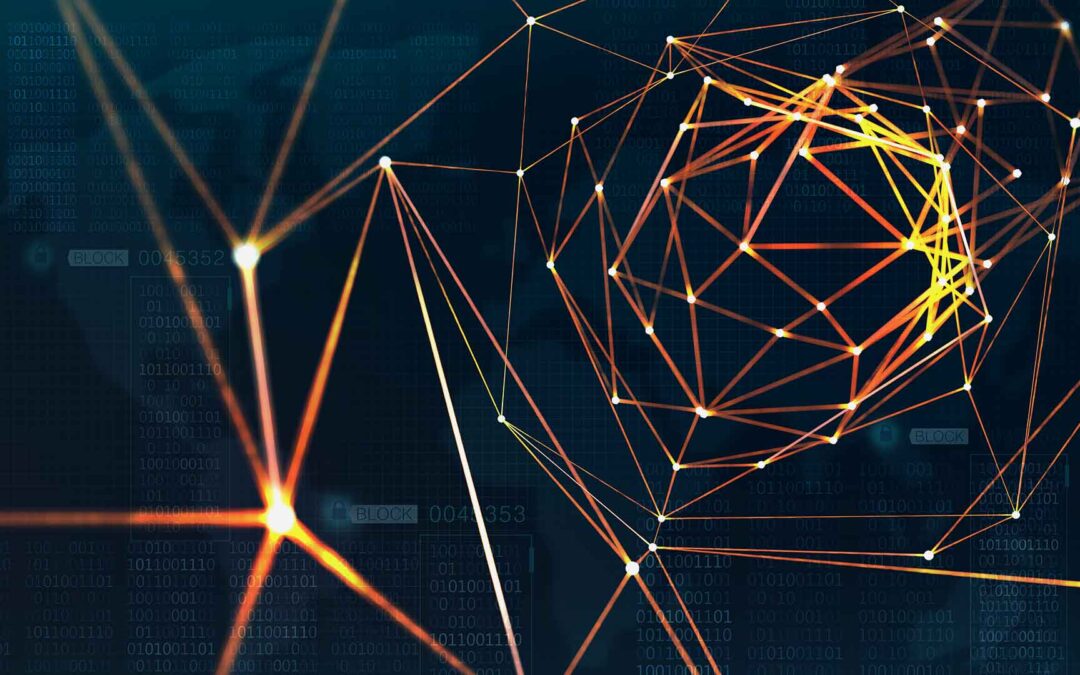
by Nicholas Mitsakos | Artificial Intelligence, Book Chapter, Innovation, Science, Technology, Transformative businesses, Writing and Podcasts
AI is not a data problem; it is a cognitive architecture problem. Data and computing power will become insurmountable hurdles for transformer-based models. A new generation of AI models requires fundamental breakthroughs. Large data models can’t learn, transfer knowledge or understanding, understand the relevance, or use analogous learning to transfer that relevance and predict. Current AI models require massive and increasing data and learn from reinforcement. This cannot scale and is massively inefficient. Real learning based on cognitive architecture, focused dynamic data, and referential data sets is a better solution. This is closer to real human learning, more effective and efficient, and offers a significantly better solution. Understanding the natural learning process — referential and analogous data, categorization, transferring and building upon that data, and creating knowledge applicable to new situations — learning builds upon itself and is exponentially effective. That is the real AI solution.

by Nicholas Mitsakos | Artificial Intelligence, China, Economy, Globalization, Innovation, Investment Principles, Technology, Transformative businesses, Writing and Podcasts
Chairman Xi faces more significant problems than just a declining stock market. Future prosperity, innovation, and China’s global position in advanced technologies are at stake. Bureaucratic regulation and central government money are not the answer, and an uncomfortable truth for communist bureaucrats is that a free market, access to venture capital and private equity, and vibrant public markets are essential for China’s success. A volatile market is still best at attributing value and allocating capital over time. China’s entrepreneurs have brilliance, incomparable fortitude, and a strong work ethic, but without capital and liquidity for that capital, the ship will run aground. Permanent capital is essential for the growth of an economy, innovation, and prosperity. Liquidity is essential for that capital.
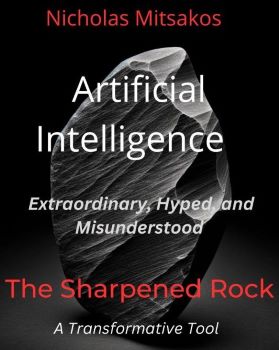
by Nicholas Mitsakos | Artificial Intelligence, Book, drug discovery, Economy, Financial Technology, Green Energy, Transformative businesses, Writing and Podcasts
AI as a powerful tool under human direction, not an autonomous entity with consciousness or emotions. It examines artificial intelligence’s opportunities, limitations, and risks while giving a reality check to the hyperbole and fears.
The first and most crucial principle in understanding AI is recognizing its inherent nature as a tool, a creation of human ingenuity designed to augment, rather than replace, human intelligence. AI systems, at their core, are complex algorithms capable of processing and learning from data at a scale and speed unattainable by human cognition.
However, it is an unprecedented, powerful tool that can permeate every aspect of society, industry, and human ingenuity globally. Its impact can be equivalent to Prometheus giving humans the gift of fire.
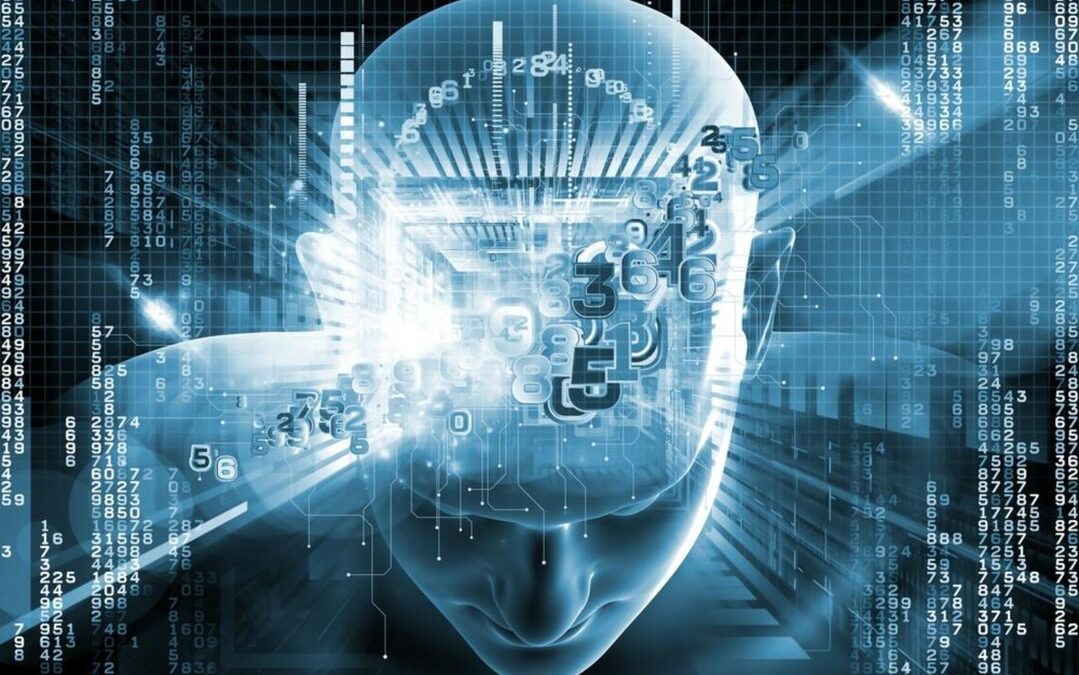
by Nicholas Mitsakos | Artificial Intelligence, Book, Book Chapter, Innovation, Science, Technology, Transformative businesses, Writing and Podcasts
Artificial intelligence is poised to significantly impact various fields and activities, transforming how we approach creativity, professional activities, science, and many more domains. Disruption will accelerate the development of new innovative businesses and strategies in finance, medicine, data management, systems engineering, materials science, art, and other industries. AI’s impact will be profound and multifaceted, driving innovation and efficiency and posing challenges regarding ethics, job displacement, and new skills and regulations. As AI continues to evolve, its integration into these areas will likely shape the future of human society in significant ways.
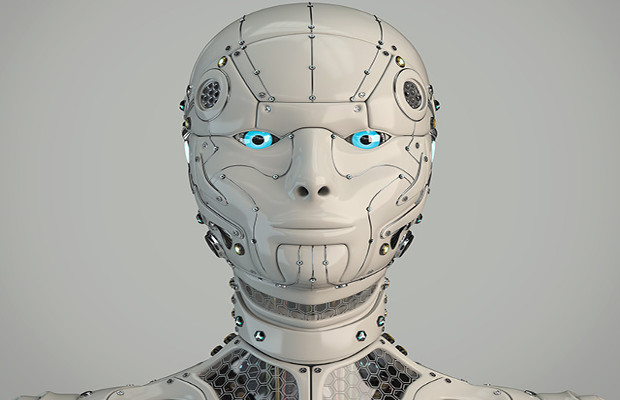
by Nicholas Mitsakos | Artificial Intelligence, Book Chapter, drug discovery, Green Energy, Innovation, Public Policy, Science, Technology, Transformative businesses, Writing and Podcasts
The era of artificial intelligence is here, and it’s generating despair and fear over the loss of control and the worry that artificial intelligence is about to unleash killer robots and enslave humanity. Perhaps…or, something else. Artificial intelligence will improve lives and generate greater access to education, improve healthcare, and advance climate science. Among many other improvements, AI’s benefits greatly outweigh its costs. AI has its costs since everything comes with a price (there are always both sides to the ledger), but the extraordinary benefits that artificial intelligence can unleash are worth the effort. Don’t slow down, pause, or restrict research, development, and AI applications. Prometheus gave the world fire and while we can still cause great harm, it was among the single greatest advancements for humankind. Artificial intelligence can be the same thing for our modern-day recipients of fire from the gods. But, we can’t be naïve. We can still burn the earth down if we are not careful. AI will not destroy the world – and is more likely to save it. I’s trajectory points towards a future where it not only enhances technological capabilities but also enriches human lives. Its evolving role will be characterized by a synergy between human and artificial intelligence, propelling societal progress and opening new frontiers of innovation and discovery is not just a technological advancement; it’s a catalyst for a new era of human endeavor. Its impact is vast, touching every aspect of our lives and work. As AI continues to evolve, its role in shaping our society and driving innovation will only become more significant, opening new horizons for growth, creativity, and human potential.
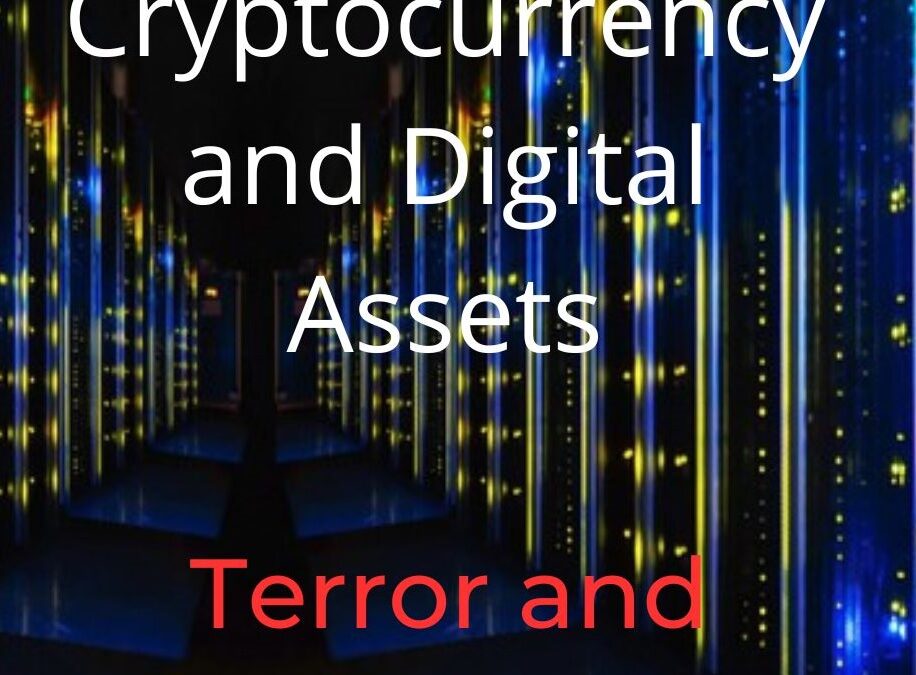
by Nicholas Mitsakos | Book, Financial Technology, Innovation, Science, Technology, Transformative businesses, Writing and Podcasts
Cryptocurrencies soar in value, plunge, hit new highs, are written off, rebound, and hit new highs again, and the cycle repeats. We should be terrified. Over the last five years, cryptocurrencies such as Bitcoin and Ether have outperformed the overall market. However, can the general trend of outperformance last, or will these digital assets drop over 90% like some of its other crypto brethren? Is there a sustainable performance that creates the foundation for either a new currency or a valuable asset class? Probably not. Forces that drive these eye-watering returns seem to be the same as those that drove the social media-driven insanity behind meme stocks such as GameStop. We are seeing social media mobs controlling demand to a limited supply, creating price spikes that look attractive to any speculative investor. Unfortunately, demand can dry up quickly and the price subsequently falls through the floor. Financial markets ruthlessly sort nonsense from substance. Volatility and existential threats have been brutal and extreme for digital assets and the reckoning for crypto has been predicted for some time. However, digital assets are not on their way to history’s dustbin. Reality is more nuanced, and I try to provide a more detailed analysis since a broad brush hardly seems appropriate. The weakest and craziest portions of the crypto world have been exposed as nothing more than silliness. But some valuable components remain resilient and offer tremendous opportunity. I will explore these in detail. There is more cause for optimism than pessimism among the best and the brightest. We will explore these opportunities while harshly dismissing the hype and silliness – avoid the terror of worthless market.












